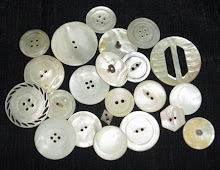Samhain!
It is pronounced SOW-in. I decided to look it up and find out about it. Why are there so many ways to celebrate Halloween HERE, in the bible belt, when in Florida, we couldn't even mention it in public schools? Fear in Florida and an overwhelmingly Gaelic rooted people in the mountains.
"Samhain is known by most folks as Halloween, but for Wiccans and Pagans it's considered a Sabbat to honor the ancestors who came before us." Quote from a Pagan and Wiccan website.
Samhain was a festival that closed the harvest season and acknowledged the beginning of the dark half of the year--winter. As you might guess, a festival involves food, bonfires and games and fun. Because it is a pre-Christian holiday, you can imagine what the Catholic Church did when they toured the British Isles.
The pope probably figured the peasants had worked long and hard and needed to have a party, but the next day would be All-Saints Day with All-Souls day right after that. Since the people acknowledged the nearness of ancestors on All Hallows' Eve and even had rituals of ushering the souls out on the eve of November 1, what a great way to get them all to church the day after the harvest celebrations.
The converters were among the best of the harvesters.
So how did Trick-or-Treat happen?
"As it was believed that faeries, witches, and demons roamed the earth on
Samhain, food and drink were customarily set out to placate them. Later
on, people began dressing up as these creatures and claiming the
goodies for themselves, sometimes performing antics or tricks in
exchange for food and drink." This is one of 10 facts about Samhain in a Huffington Post article.
My fondest memories are Octobers in my early school days, some of which I spent in communities with a lot of people of Scottish, Irish, Welsh, and English descent.
Whatever the case, I identify with my Scottish, Irish, Welsh, English roots especially in
October.
Dr. Samuel Johnson works on his dictionary which will ultimately define oatmeal as "a grain which in England is generally given to horses but in Scotland, supports the people."
Now I have a craving for oatmeal.





1 comment:
You make me smile with that statement:
"...GENETIC memory. I wonder if we gravitate toward those ideas, habits, likes and dislikes of the peoples before us?"
I have often wondered that very thing. My first introduction to the Celtic music of my ancestors just blew me away, became a part of my soul.
I have been enjoying your blog this morning. I am a tea pot collector too! '-)
~Lynda
Post a Comment